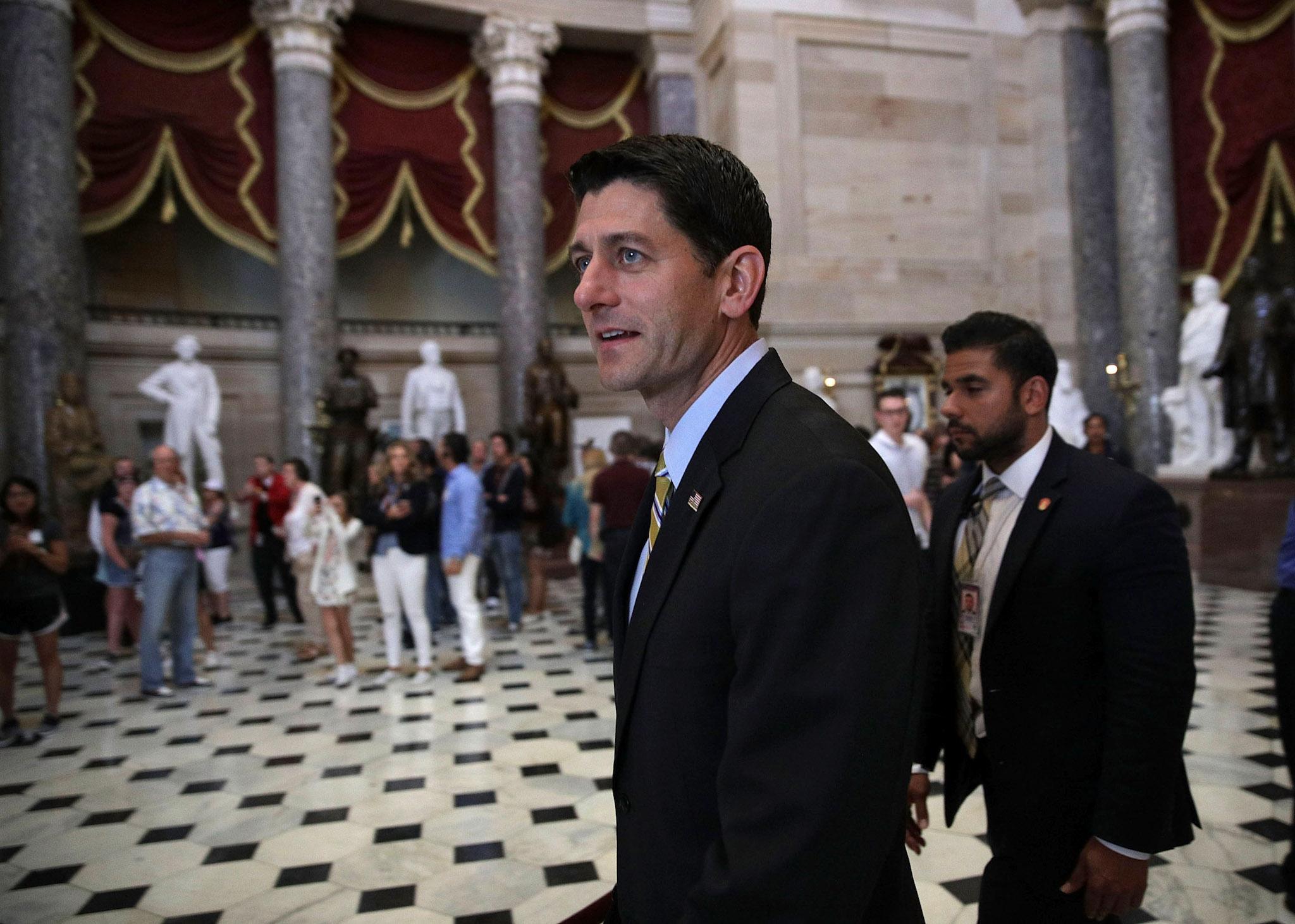Republicans one step closer to pushing through 'partisan' tax plan
The House approved a budget that calls for more than $5 trillion in spending cuts over the next 10 years

Your support helps us to tell the story
From reproductive rights to climate change to Big Tech, The Independent is on the ground when the story is developing. Whether it's investigating the financials of Elon Musk's pro-Trump PAC or producing our latest documentary, 'The A Word', which shines a light on the American women fighting for reproductive rights, we know how important it is to parse out the facts from the messaging.
At such a critical moment in US history, we need reporters on the ground. Your donation allows us to keep sending journalists to speak to both sides of the story.
The Independent is trusted by Americans across the entire political spectrum. And unlike many other quality news outlets, we choose not to lock Americans out of our reporting and analysis with paywalls. We believe quality journalism should be available to everyone, paid for by those who can afford it.
Your support makes all the difference.Republicans are looking to avoid needing the help of Democrats to rewrite the US tax code.
In a 219-206 vote, the House of Representatives passed a $4.1 trillion budget plan that would allow Republicans in the Senate to push through a tax bill without any votes from Democrats.
The budget plan calls for more than $5 trillion in spending cuts over the next 10 years. It also promises to slash spending on Medicaid – a healthcare programme for the poor – by about $1 trillion in the coming decade and keep its plan to repeal and replace Obamacare alive.
House Democrats unanimously opposed the budget resolution, with House Minority Whip Steny Hoyer calling it “a vehicle for achieving partisan tax reform.” A total of 18 Republicans voted against the measure.
“We haven’t reformed this tax system since 1986. We need to pass this budget so we can help bring more jobs, fairer taxes and bigger paychecks for people across this country,” said House Speaker Paul Ryan during floor debate on the budget proposal.
The Senate is currently working on its own version of the fiscal 2018 budget, which is expected to come to the floor sometime this month.
If the Senate also succeeds in passing a budget resolution, Republicans would trigger a legislative process known as reconciliation, during which they could pass their tax reform bill with a majority of only 51 votes.
Senate Majority Leader Mitch McConnell could only afford two defections out of the 52 Republicans in the 100-member Senate.
Most other bills can be filibustered – when debate over a proposed piece of legislation is extended – and would need 60 votes to end the filibuster, or invoke closure. Requiring 60 votes to end debate is a unique characteristic of the Senate and has the effect of requiring some Republicans to work with Democrats to push forward legislation.
Republicans also attempted to use reconciliation to pass a healthcare bill – but they failed multiple times.
The party has still not secured a major legislative victory since Donald Trump took office in January, despite having control over both the House and the Senate.
Join our commenting forum
Join thought-provoking conversations, follow other Independent readers and see their replies
Comments